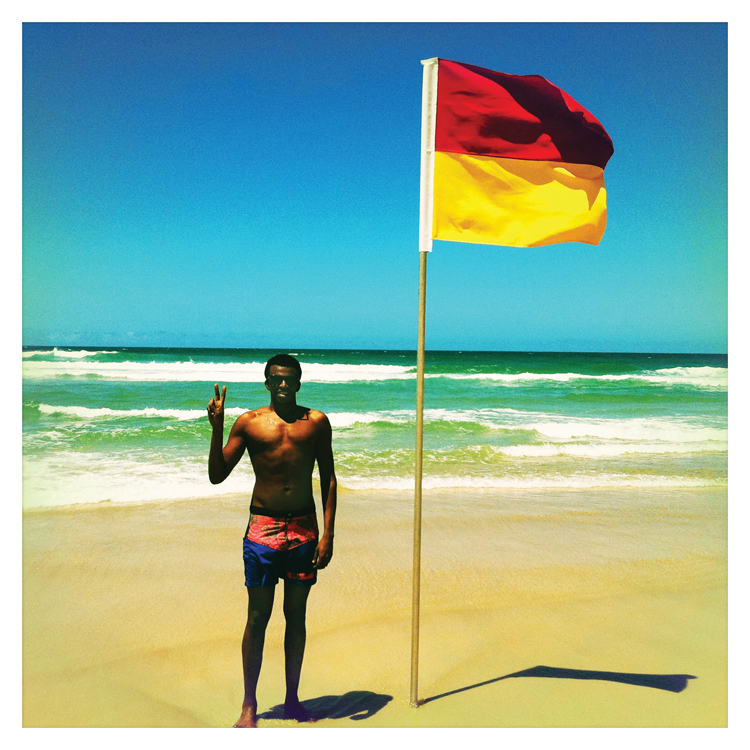Ahmed Gallab, the mastermind behind the moniker Sinkane, was born in Sudan. At age six, he fled the country with his family, eventually settling in the college town of Columbus, Ohio. However, the unfortunate but all too common story of displaced Africans finding a home in the U.S. doesn't come close to defining the range of Gallab's musical influences. In high school, Gallab played drums in several hardcore bands. Later, like so many musicians who came of age in the 2000's, Gallab moved to Brooklyn, where he continued to play music, contributing percussion and drums to indie-rock heavyweights such as Caribou, Of Montreal and Born Ruffians.
This eclectic mix of African roots with what has become THE prototypical narrative for American indie-rock certainly makes for a good story (one that publicist and bloggers are latching onto) but it isn't necessarily the best (or even a correct) starting point for approaching Mars. After all, Gallab's music isn't immediately Sudanese. While this influence is certainly present, it by no means stands out a defining sonic characteristic. Instead, the Sudanese elements find themselves interspersed with the flourishes of afrobeat, soukous, and Tuareg desert blues guitar sprinkled throughout the record.
All of these genres originate from very different countries with different musical pasts, and their mixture complicates any narrative attempting to draw connections between artistic output and personal history. Which is likely exactly how Gallab wants it. The entire record seems keen to play with this idea, actively exploring the complex dynamic of a Sudanese-born artist with musical roots in that culture who grew up (and came to musical maturity) in a very different place. After all, the album is named Mars and features a cover with Gallab on a nondescript beach under a flag of no origin. Sudanese? American? Martian? How about all of the above? If anything, this new album seems to be more in the vein of the recent crop of worldly indie-heads such as Yeasayer, Fools Gold, or the the aforementioned Caribou in that, rather than opening a direct connection to African traditions, it is first and foremost an impressively eclectic "indie" effort that keeps an open ear to sounds coming from beyond the borders of the western world and utilizes bits and pieces for its own funky, groove-laden collage.
This cross-national blend fits the music well. Mars opens up with a reinterpretation of Steve Miller's disco-y "Fly Like an Eagle" and then slips into a Tuareg blues inspired trance on the following number "Jeeper Creepers." The track "Warm Spell" is a mid-tempo multi-rythmic jam, while the title track would fit well as a interlude on a mid-career Pharaoh Sanders offering. The closing track "Caparundi" puts it all together, slowing building off repetitive percussion and Gallab's unwavering vocals with a cascade of brass and winds.
What all this amounts to is an intriguing and highly listenable record from a stateside artist who actively avoids being pegged to any one style, genre, or even country by beefing up his music with a collection of sounds that don't originate from a single place or tradition. The fact that Gallab is from Sudan may make for an interesting backstory and leave listeners searching for African elements within the music. But take away the one-sheet, and Mars is another installment in the growing list of records erasing borders and reaching across oceans to forge a sound that isn't really here or there. Which seems to be the most driving, concrete aspect of Mars, and suggests how it should be best appreciated.









